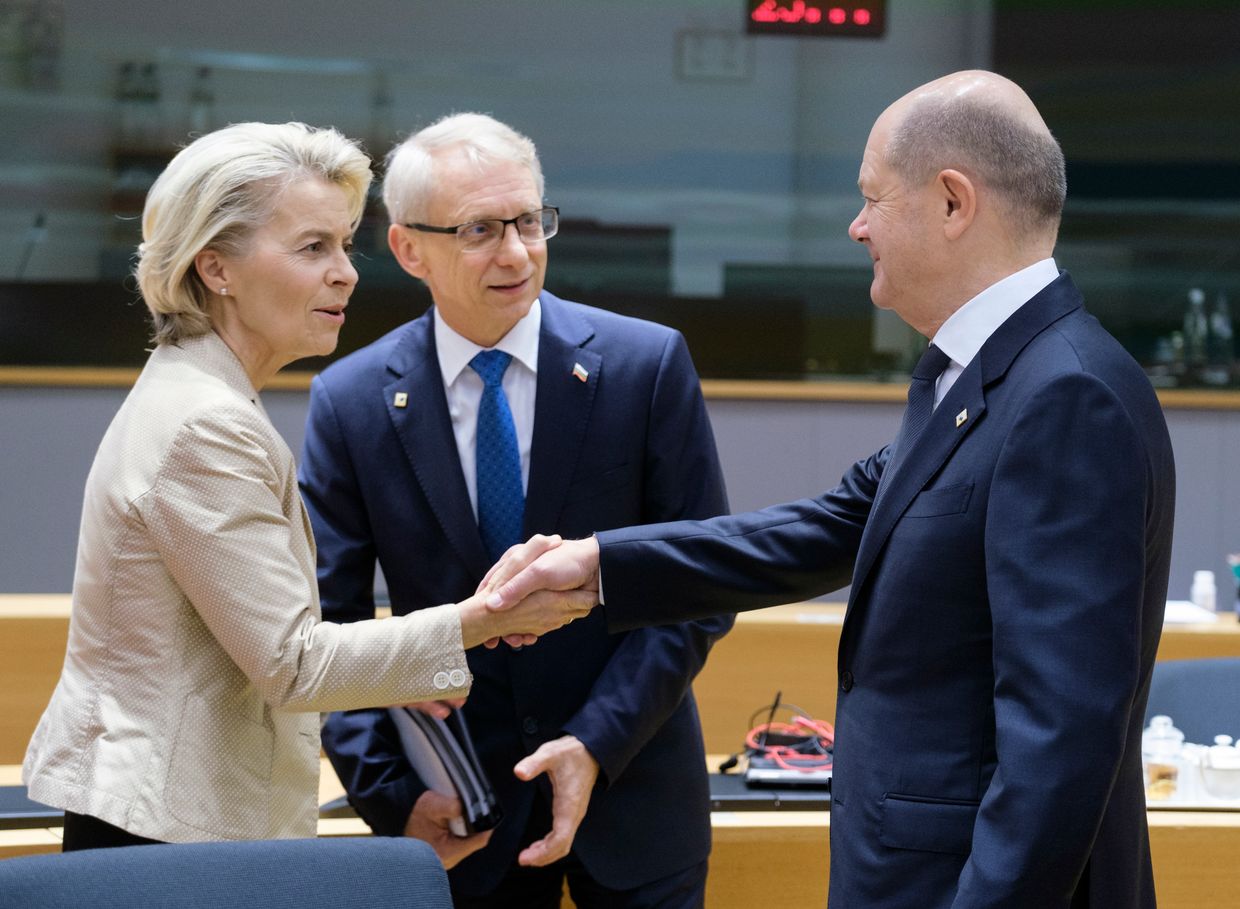Experts: Ukraine's EU candidacy highlights need for major bloc reforms.
As Ukraine seeks accession to the European Union, the EU itself must undergo major reforms before it can successfully expand, experts said at a panel hosted by the Atlantic Council on Oct.
27. The question of EU expansion once seemed to be a matter of gradual alterations and far-off possibilities, said panel host and Atlantic Council Fellow Frances Burwell. "Ukraine has changed all that," Burwell said.
Ukraine's accelerated candidacy has hastened the EU's need to implement comprehensive reforms, including treaty reform and changes to the bloc's voting structure. While the EU has made it clear that Ukraine and other candidate countries need to implement a number of reforms in order to achieve full membership, the discussion focused on the other side of the equation: What does the EU need to do to prepare for enlargement? Daniela Schwarzer, a member of the Franco-German working group on EU institutional reform, said that by not focusing on enlargement, the EU risked losing credibility with candidate countries.
"The EU needs reform, not only to be able to enlarge, but also to be able to function better in a completely changed geopolitical context," she said. Dmytro Naumenko, senior analyst at the Ukrainian Center for European Policy, said that the recent disputes over wartime grain exports represent one consequence of the EU's lack of preparation. "The grain story is a good illustration of the conflict of this kind," Naumenko said. "The EU wasn't ready for such a drastic shift in the way the grain flows."
Schwarzer said enlargement reforms should focus on "enhancing the EU's capacity to act" and that "proposals should contribute to democratic legitimacy." However, not all panelists agreed that major reforms to the EU were necessary. Bart Kot, program director at the Warsaw Security Forum, said Poland was not always aligned with the views of Western countries, and may not support the conclusions reached by the Franco-German working group.
"Although being very pro-Ukraine, [Poland] is also at the same time skeptical of the reforms in the European Union," Kot said. Naumenko said that for Ukraine's part, in order to be ready for membership, "we will undertake any commitments, including all the painful stuff." He also said that "associate" status, which does not grant a country voting rights within the EU, was not Ukraine's aim.
"For Ukraine it is extremely important to start the process for its full-scale membership now," Naumenko said. "We need to invest substantial efforts - now I'm talking about our country, our capacity, but as well as for the European Union."
EU leaders endorse plan to use frozen Russian assets to rebuild Ukraine, but fight not over Ukraine may have gotten one step closer to gaining access to frozen Russian assets to put toward its massive reconstruction needs. European Union leaders on Oct.
27 expressed support for a proposal to use billions of euros in windfall taxes from Russian assets tied up in the West to rebuild

 Abbey Fenbert
Abbey Fenbert
News Editor
Abbey Fenbert is a news editor at the Kyiv Independent.
She is a freelance writer, editor, and playwright with an MFA from Boston University.
Abbey served as a Peace Corps Volunteer in Ukraine from 2008-2011.